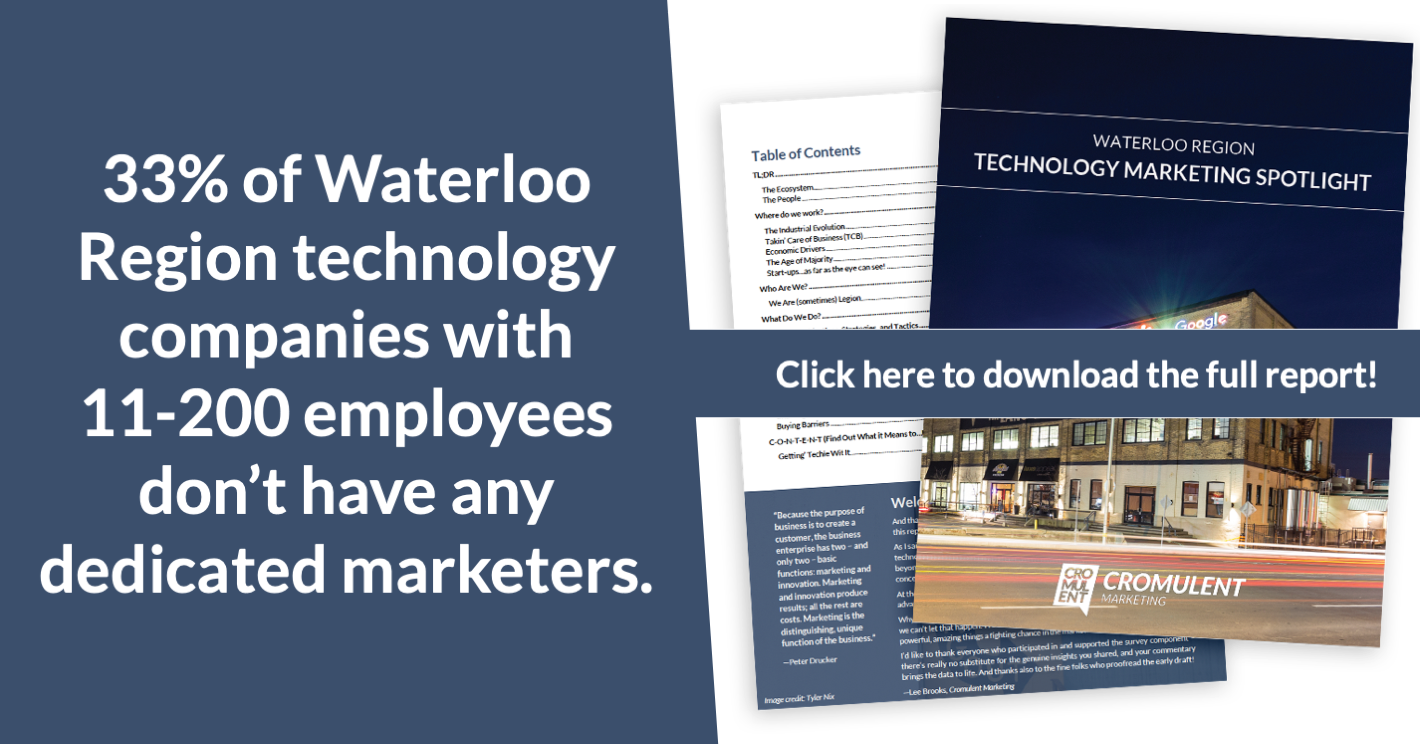Minding the Gap
Most technology companies are engineering-focused, with some operations personnel and salespeople in the mix to keep things running and to try to land some deals. Marketing is often an afterthought, whether because of the better-mousetrap fallacy, due to genuine lack of awareness, or as a result of financial limitations.
Unless you can find a marketer who’s proficient at other roles, you can’t justify a full-time hire due to the inefficiency.
Compounding matters is that marketing activities at this stage tend to be quite lumpy. Something like a product launch or tradeshow demands a bunch of intense attention for a few weeks, and then until the next launch or tradeshow – maybe six months away – there’s relatively little work. By the very nature of those projects, they can’t be effectively stretched out. Unless you can find a marketer who’s proficient at other roles, you can’t justify a full-time hire due to the inefficiency.
What usually happens is that “doing some marketing” – which is a hodge podge of product marketing, marketing communications, digital marketing, event management, … and so on – gets picked up by a founder (usually at the expense of other, arguably more critical activities) or gets thrown on someone who was standing in the wrong place at the wrong time. In either case, the results aren’t optimal.
Unfortunately, until the company is ready (and able) to scale up, it’s very hard to justify investing an entire, precious headcount on a marketing person. So marketing continues to underperform, which holds back the overall organization.
In our origin story, I refer to this challenge as the start-up to scale-up marketing gap. As a start-up, you necessarily have zero or few dedicated marketing resources, but once you’ve scaled up you’ve got a few people in place. The gap between the two is painful, and occurs at a critical time (what time isn’t critical, though?) in the company’s existence.
This gap is one of the core challenges facing growing tech companies, and it played a major role in my decision to start Cromulent Marketing. Frankly, even if all start-ups were so awash in cash that they could afford a little inefficiency, there still aren’t enough capable technology marketers with the skills and strategic acumen to fill all the vacancies. For more companies to succeed, we need an M-to-N mapping of resources.
One side of the coin is that this market dynamic presents a great opportunity for the right agency (*cough* Cromulent *cough*); the other side of the coin is that an agency lets tech companies tap into talent and experience only when they need it, which is far more efficient than filling a full-time seat for part time work.
Personally, I believe that with the right outsourced partners, a company can get by very effectively for a very long time before it makes sense to grow the marketing team. And hopefully for Cromulent’s sake, a few of you believe that, too!


